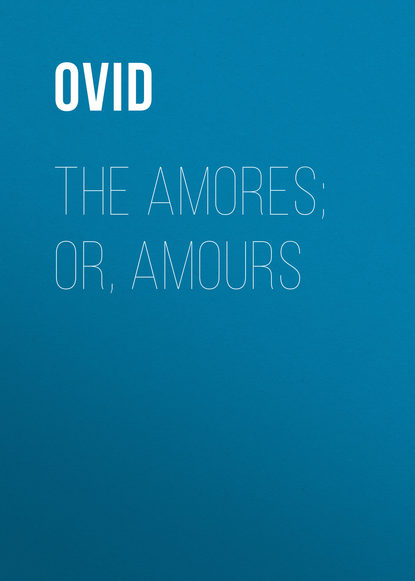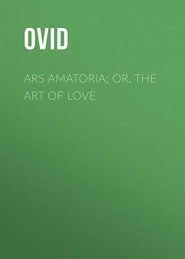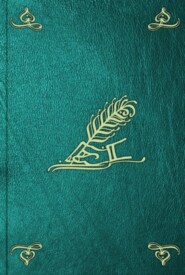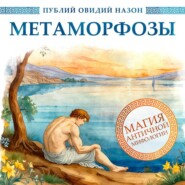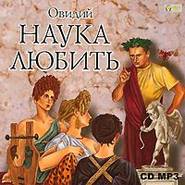По всем вопросам обращайтесь на: info@litportal.ru
(©) 2003-2024.
✖
The Amores; or, Amours
Настройки чтения
Размер шрифта
Высота строк
Поля
[ Woman has stained.—Ver. 40. From this we learn that it was the custom of the Lydians to tint ivory of a pink colour, that it might not turn yellow with age.]
352 (return (#x3_x_3_i37))
[ Of this quality.—Ver. 54. 'Nota,' here mentioned, is literally the mark which was put upon the 'amphorae,' or 'cadi,' the 'casks' of the ancients, to denote the kind, age, or quality of the wine. Hence the word figuratively means, as in the present instance, 'sort,' or 'quality.' Our word 'brand' has a similar meaning. The finer kinds of wine were drawn off from the 'dolia,' or large vessels, in which they were kept into the 'amphoræ,' which were made of earthenware or glass, and the mouth of the vessel was stopped tight by a plug of wood or cork, which was made impervious to the atmosphere by being rubbed over with pitch, clay, or a composition of gypsum. On the outside, the title of the wine was painted, the date of the vintage being denoted by the names of the Consuls then in office: and when the vessels were of glass, small tickets, called 'pittacia,' were suspended from them, stating to a similar effect. For a full account of the ancient wines, see Dr. Smith's Dictionary of Greek and Roman Antiquities.]
353 (return (#x3_x_3_i42))
[ The imitative bird.—Ver. 1. Statius, in his Second Book, calls the parrot 'Humanæ sollers imitator linguæ,' 'the clever imitator of the human voice.']
354 (return (#x3_x_3_i42))
[ The long trumpet.—Ver. 6. We learn from Aulus Gellius, that the trumpeters at funerals were called 'siticines.' They headed the funeral procession, playing mournful strains on the long trumpet, 'tuba,' here mentioned. These were probably in addition to the 'tibicines,' or 'pipers,' whose number was limited to ten by Appius Claudius, the Censor. See the Sixth Book of the Fasti, 1. 653.]
360 (return (#x3_x_3_i43))
[ Affectionate turtle-dove.—Ver. 12. This turtle-dove and the parrot had been brought up in the same cage together. He probably refers to these birds in the thirty-eighth line of the Epistle of Sappho to Phaon where he mentions the turtle-dove as being black. This Elegy is remarkable for its simplicity and pathetic beauty, and can hardly fail to remind the reader of Cowper's Elegies, on the death of the bullfinch, and that of his pet hare.]
361 (return (#x3_x_3_i43))
[ The Phocian youth.—Ver. 15. He alludes to the friendship of Orestes and Pylades the Phocian, the son of Strophius.]
362 (return (#x3_x_3_i44))
[ So prettily.—Ver. 24. 'Bene' means here, 'prettily,' or 'cleverly,' rather than 'distinctly,' which would be inconsistent with the signification of blæsus.]
363 (return (#x3_x_3_i45))
[ All their battles —Ver. 27. Aristotle, in the Eighth Chapter of the Ninth Book of his History of Animals, describes quails or ortolans, and partridges, as being of quarrelsome habits, and much at war among themselves.]
364 (return (#x3_x_3_i45))
[ The foreboder.—Ver. 34. Festus Avienus, in his Prognostics, mentions the jackdaw as foreboding rain by its chattering.]
366 (return (#x3_x_3_i45))
[ Armed Minerva.—Ver. 35. See the story of the Nymph Coronis, in the Second Book of the Metamorphoses.]
367 (return (#x3_x_3_i45))
[ After nine ages.—Ver. 36. Pliny makes the life of the crow to last for a period of three hundred years.]
368 (return (#x3_x_3_i45))
[ Destined numbers.—Ver. 40. 'Numeri' means here, the similar. parts of one whole: 'the allotted portions of human life.']
369 (return (#x3_x_3_i46))
[ Seventh day was come.—Ver. 45. Hippocrates, in his Aphorisms, mentions the seventh, fourteenth, and twentieth, as the critical days in a malady. Ovid may here possibly allude to the seventh day of fasting, which was supposed to terminate the existence of the person so doing.]
370 (return (#x3_x_3_i46))
[ Corinna, farewell.—Ver. 48. It may have said 'Corinna;' but Ovid must excuse us if we decline to believe that it said 'vale,' 'farewell,' also; unless, indeed, it had been in the habit of saying so before; this, perhaps, may have been the case, as it had probably often heard the Poet say 'vale' to his mistress.]
371 (return (#x3_x_3_i47))
[ The Elysian hill.—Ver. 49. He kindly imagines a place for the souls of the birds that are blessed.]
372 (return (#x3_x_3_i47))
[ By his words.—Ver. 58. His calling around him, in human accents, the other birds in the Elysian fields, is ingeniously and beautifully imagined.]
377 (return (#x3_x_3_i48))
[ This very tomb.—Ver. 61. This and the following line are considered by Heinsius to be spurious, and, indeed, the next line hardly looks like the composition of Ovid.]
378 (return (#x3_x_3_i52))
[ Am I then.—Ver. 1. 'Ergo' here is very expressive. 'Am I always then to be made the subject of fresh charges?']
379 (return (#x3_x_3_i52))
[ Long-eared ass.—Ver. 15. Perhaps the only holiday that the patient ass got throughout the year, was in the month of June, when the festival of Vesta was celebrated, and to which Goddess he had rendered an important service. See the Sixth Book of the Fasti, 1. 311, et seq.]
380 (return (#x3_x_3_i53))
[ Skilled at tiring.—Ver. 17. She was the 'ornatrix,' or 'tiring woman' of Corinna. As slaves very often received their names from articles of dress, Cypassis was probably so called from the garment called 'cypassis,' which was worn by women and men of effeminate character, and extended downwards to the ancles.]
387 (return (#x3_x_3_i53))
[ With the whip.—Ver. 22. From this we see that the whip was applied to the female slaves, as well as the males.]
388 (return (#x3_x_3_i59))
[ Carpathian ocean..—Ver. 20. See the Metamorphoses, Book xi.1. 249, and the Note to this passage.]
389 (return (#x3_x_3_i59))
[ Swarthy Cypassis.—Ver. 22. From this expression, she was probably a native of Egypt or Syria.]
390 (return (#x3_x_3_i63))
[ With his spear.—Ver. 7. He alludes to the cure of Telephus by the aid of the spear of Achilles, which had previously wounded him.]
391 (return (#x3_x_3_i64))
[ Cottages of thatch.—Ver. 18. In the First Book of the Fasti, 1.199, he speaks of the time when 'a little cottage received Quiriuus, the begotten of Mars, and the sedge of the stream afforded him a scanty couch.' The straw-thatched cottage of Romulus was preserved at Rome for many centuries. See the Fasti, Book iii. 1. 184, and the Note to the passage.]
392 (return (#x3_x_3_i64))
352 (return (#x3_x_3_i37))
[ Of this quality.—Ver. 54. 'Nota,' here mentioned, is literally the mark which was put upon the 'amphorae,' or 'cadi,' the 'casks' of the ancients, to denote the kind, age, or quality of the wine. Hence the word figuratively means, as in the present instance, 'sort,' or 'quality.' Our word 'brand' has a similar meaning. The finer kinds of wine were drawn off from the 'dolia,' or large vessels, in which they were kept into the 'amphoræ,' which were made of earthenware or glass, and the mouth of the vessel was stopped tight by a plug of wood or cork, which was made impervious to the atmosphere by being rubbed over with pitch, clay, or a composition of gypsum. On the outside, the title of the wine was painted, the date of the vintage being denoted by the names of the Consuls then in office: and when the vessels were of glass, small tickets, called 'pittacia,' were suspended from them, stating to a similar effect. For a full account of the ancient wines, see Dr. Smith's Dictionary of Greek and Roman Antiquities.]
353 (return (#x3_x_3_i42))
[ The imitative bird.—Ver. 1. Statius, in his Second Book, calls the parrot 'Humanæ sollers imitator linguæ,' 'the clever imitator of the human voice.']
354 (return (#x3_x_3_i42))
[ The long trumpet.—Ver. 6. We learn from Aulus Gellius, that the trumpeters at funerals were called 'siticines.' They headed the funeral procession, playing mournful strains on the long trumpet, 'tuba,' here mentioned. These were probably in addition to the 'tibicines,' or 'pipers,' whose number was limited to ten by Appius Claudius, the Censor. See the Sixth Book of the Fasti, 1. 653.]
360 (return (#x3_x_3_i43))
[ Affectionate turtle-dove.—Ver. 12. This turtle-dove and the parrot had been brought up in the same cage together. He probably refers to these birds in the thirty-eighth line of the Epistle of Sappho to Phaon where he mentions the turtle-dove as being black. This Elegy is remarkable for its simplicity and pathetic beauty, and can hardly fail to remind the reader of Cowper's Elegies, on the death of the bullfinch, and that of his pet hare.]
361 (return (#x3_x_3_i43))
[ The Phocian youth.—Ver. 15. He alludes to the friendship of Orestes and Pylades the Phocian, the son of Strophius.]
362 (return (#x3_x_3_i44))
[ So prettily.—Ver. 24. 'Bene' means here, 'prettily,' or 'cleverly,' rather than 'distinctly,' which would be inconsistent with the signification of blæsus.]
363 (return (#x3_x_3_i45))
[ All their battles —Ver. 27. Aristotle, in the Eighth Chapter of the Ninth Book of his History of Animals, describes quails or ortolans, and partridges, as being of quarrelsome habits, and much at war among themselves.]
364 (return (#x3_x_3_i45))
[ The foreboder.—Ver. 34. Festus Avienus, in his Prognostics, mentions the jackdaw as foreboding rain by its chattering.]
366 (return (#x3_x_3_i45))
[ Armed Minerva.—Ver. 35. See the story of the Nymph Coronis, in the Second Book of the Metamorphoses.]
367 (return (#x3_x_3_i45))
[ After nine ages.—Ver. 36. Pliny makes the life of the crow to last for a period of three hundred years.]
368 (return (#x3_x_3_i45))
[ Destined numbers.—Ver. 40. 'Numeri' means here, the similar. parts of one whole: 'the allotted portions of human life.']
369 (return (#x3_x_3_i46))
[ Seventh day was come.—Ver. 45. Hippocrates, in his Aphorisms, mentions the seventh, fourteenth, and twentieth, as the critical days in a malady. Ovid may here possibly allude to the seventh day of fasting, which was supposed to terminate the existence of the person so doing.]
370 (return (#x3_x_3_i46))
[ Corinna, farewell.—Ver. 48. It may have said 'Corinna;' but Ovid must excuse us if we decline to believe that it said 'vale,' 'farewell,' also; unless, indeed, it had been in the habit of saying so before; this, perhaps, may have been the case, as it had probably often heard the Poet say 'vale' to his mistress.]
371 (return (#x3_x_3_i47))
[ The Elysian hill.—Ver. 49. He kindly imagines a place for the souls of the birds that are blessed.]
372 (return (#x3_x_3_i47))
[ By his words.—Ver. 58. His calling around him, in human accents, the other birds in the Elysian fields, is ingeniously and beautifully imagined.]
377 (return (#x3_x_3_i48))
[ This very tomb.—Ver. 61. This and the following line are considered by Heinsius to be spurious, and, indeed, the next line hardly looks like the composition of Ovid.]
378 (return (#x3_x_3_i52))
[ Am I then.—Ver. 1. 'Ergo' here is very expressive. 'Am I always then to be made the subject of fresh charges?']
379 (return (#x3_x_3_i52))
[ Long-eared ass.—Ver. 15. Perhaps the only holiday that the patient ass got throughout the year, was in the month of June, when the festival of Vesta was celebrated, and to which Goddess he had rendered an important service. See the Sixth Book of the Fasti, 1. 311, et seq.]
380 (return (#x3_x_3_i53))
[ Skilled at tiring.—Ver. 17. She was the 'ornatrix,' or 'tiring woman' of Corinna. As slaves very often received their names from articles of dress, Cypassis was probably so called from the garment called 'cypassis,' which was worn by women and men of effeminate character, and extended downwards to the ancles.]
387 (return (#x3_x_3_i53))
[ With the whip.—Ver. 22. From this we see that the whip was applied to the female slaves, as well as the males.]
388 (return (#x3_x_3_i59))
[ Carpathian ocean..—Ver. 20. See the Metamorphoses, Book xi.1. 249, and the Note to this passage.]
389 (return (#x3_x_3_i59))
[ Swarthy Cypassis.—Ver. 22. From this expression, she was probably a native of Egypt or Syria.]
390 (return (#x3_x_3_i63))
[ With his spear.—Ver. 7. He alludes to the cure of Telephus by the aid of the spear of Achilles, which had previously wounded him.]
391 (return (#x3_x_3_i64))
[ Cottages of thatch.—Ver. 18. In the First Book of the Fasti, 1.199, he speaks of the time when 'a little cottage received Quiriuus, the begotten of Mars, and the sedge of the stream afforded him a scanty couch.' The straw-thatched cottage of Romulus was preserved at Rome for many centuries. See the Fasti, Book iii. 1. 184, and the Note to the passage.]
392 (return (#x3_x_3_i64))





